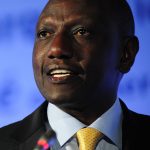Politics
Kenya Politics
This page explores Kenya’s political structure incorporating real-time RSS feed news and videos. By harnessing the power of RSS feeds, visitors can stay informed about the latest developments in Kenya’s politics as they happen. The dynamic nature of these feeds ensures that users receive up-to-the-minute updates on political events, policy changes, and significant milestones, enabling them to stay abreast of the ever-evolving political scene.

William Ruto
5th President of Kenya
Incumbent
Assumed office
September 13, 2022
Image credit
Kenya, located in East Africa, follows a presidential system of government where the President, elected through a popular vote for a maximum of two five-year terms, holds the dual role of head of state and head of government.
The country’s parliament is bicameral, consisting of the National Assembly and the Senate. Members of the National Assembly are elected by the public, while senators represent counties and are elected by county residents. The judiciary, known for its independence, includes the Supreme Court, the Court of Appeal, and the High Court. Kenya embraces a devolved system with 47 counties, each governed by an elected governor and assembly, fostering local autonomy and development. The political landscape is marked by a multi-party system, with influential parties such as the Jubilee Party of Kenya and the Orange Democratic Movement.
Despite periods of political stability, Kenya grapples with challenges like ethnic tensions and corruption, shaping the ongoing political dynamics and fueling efforts toward reform and progress.
Unless other sources are listed, original content is provided by ChatGPT. ChatGPT may produce inaccurate information about people, places, or facts. #Kenya #KenyaPolitics #KenyaNews #KenyaNewsToday #KenyaRSSFeed #BlahFace



